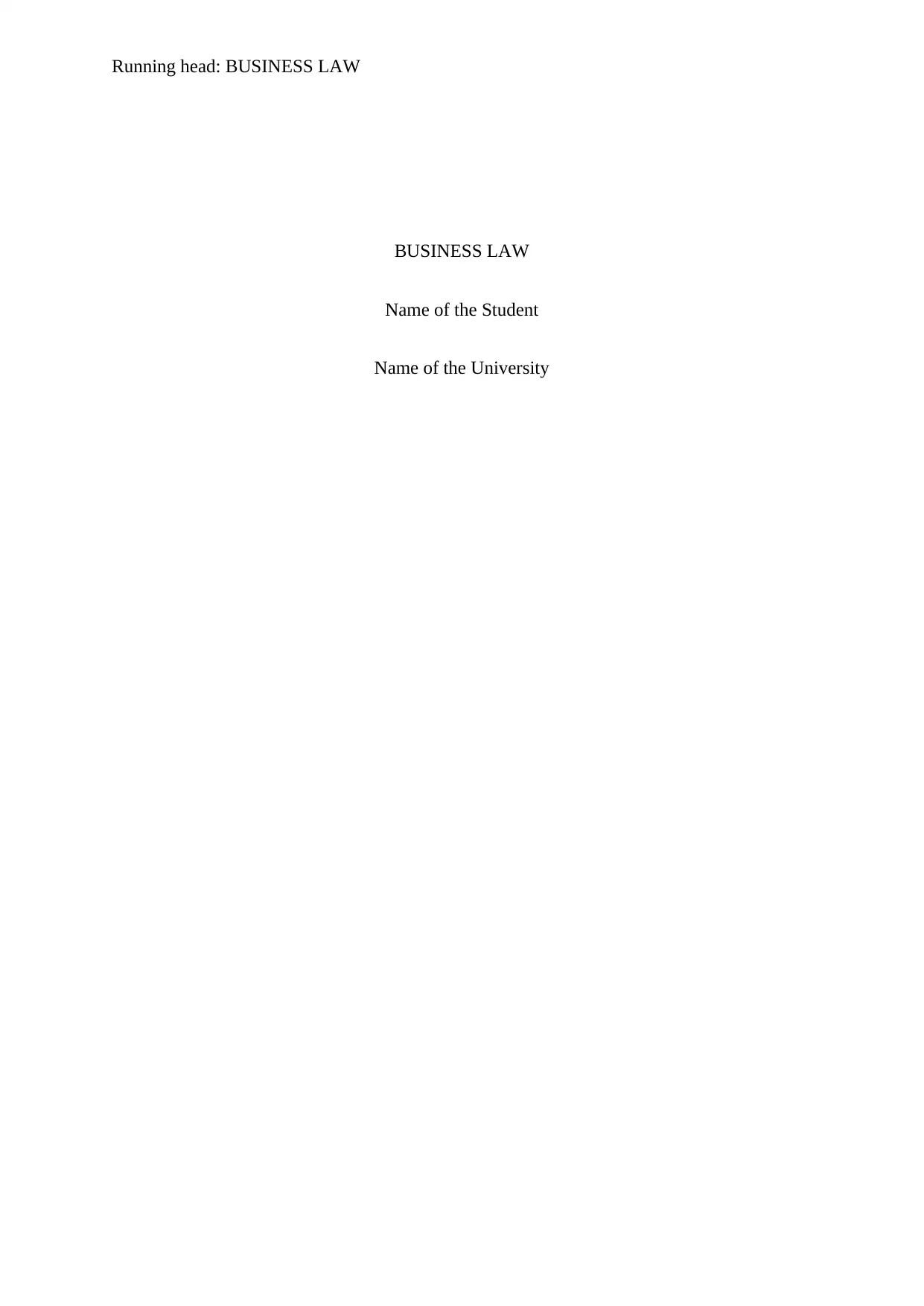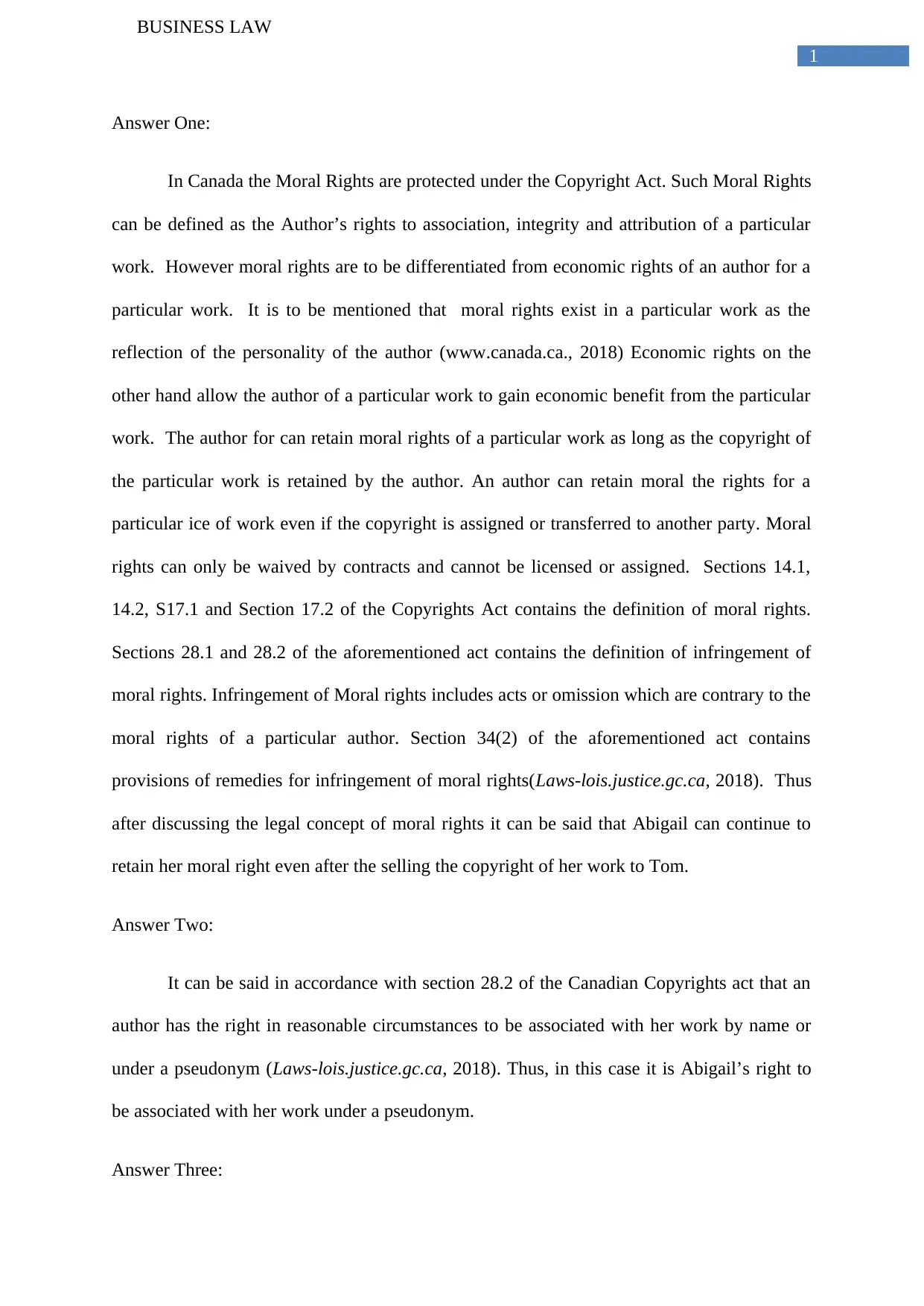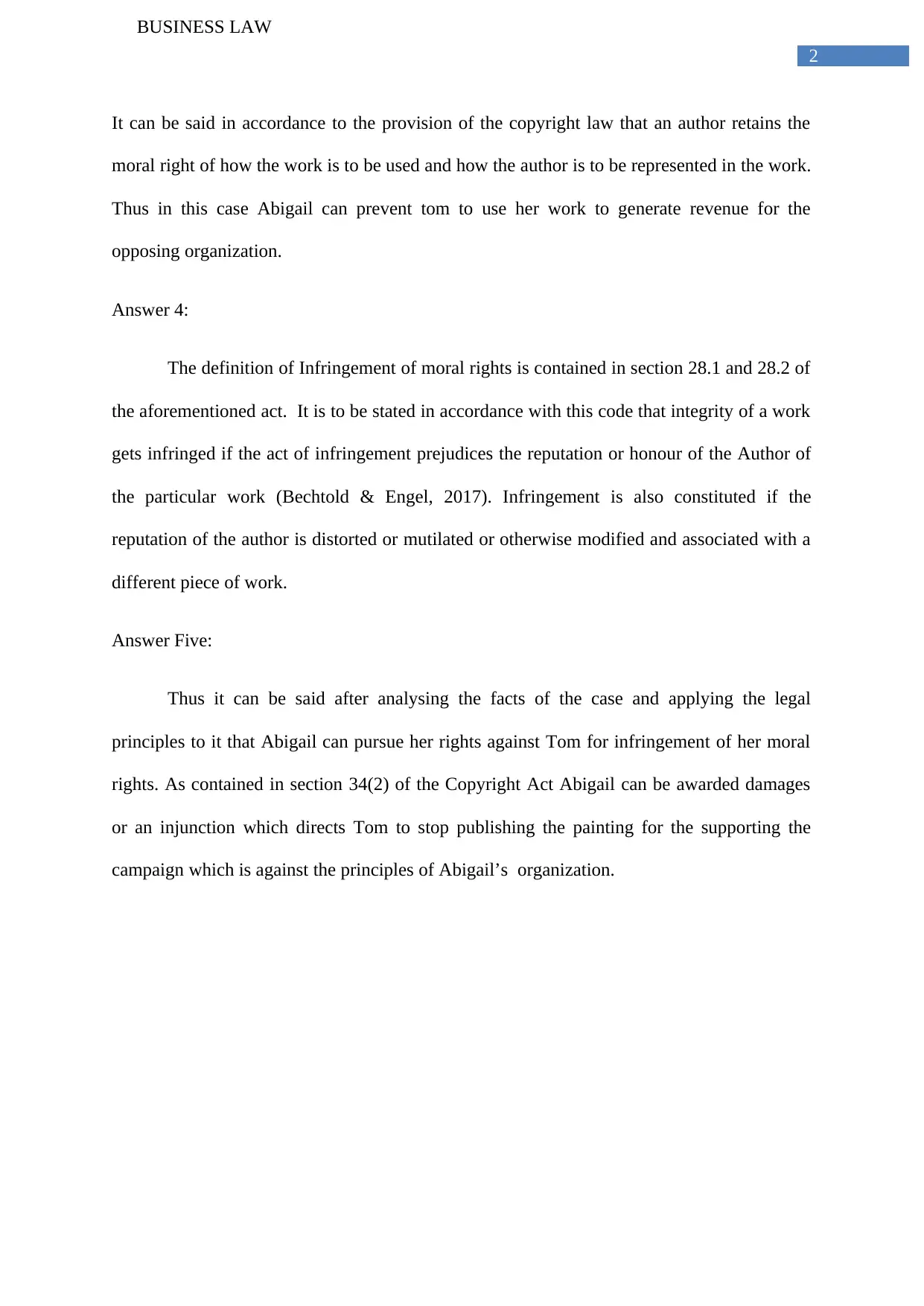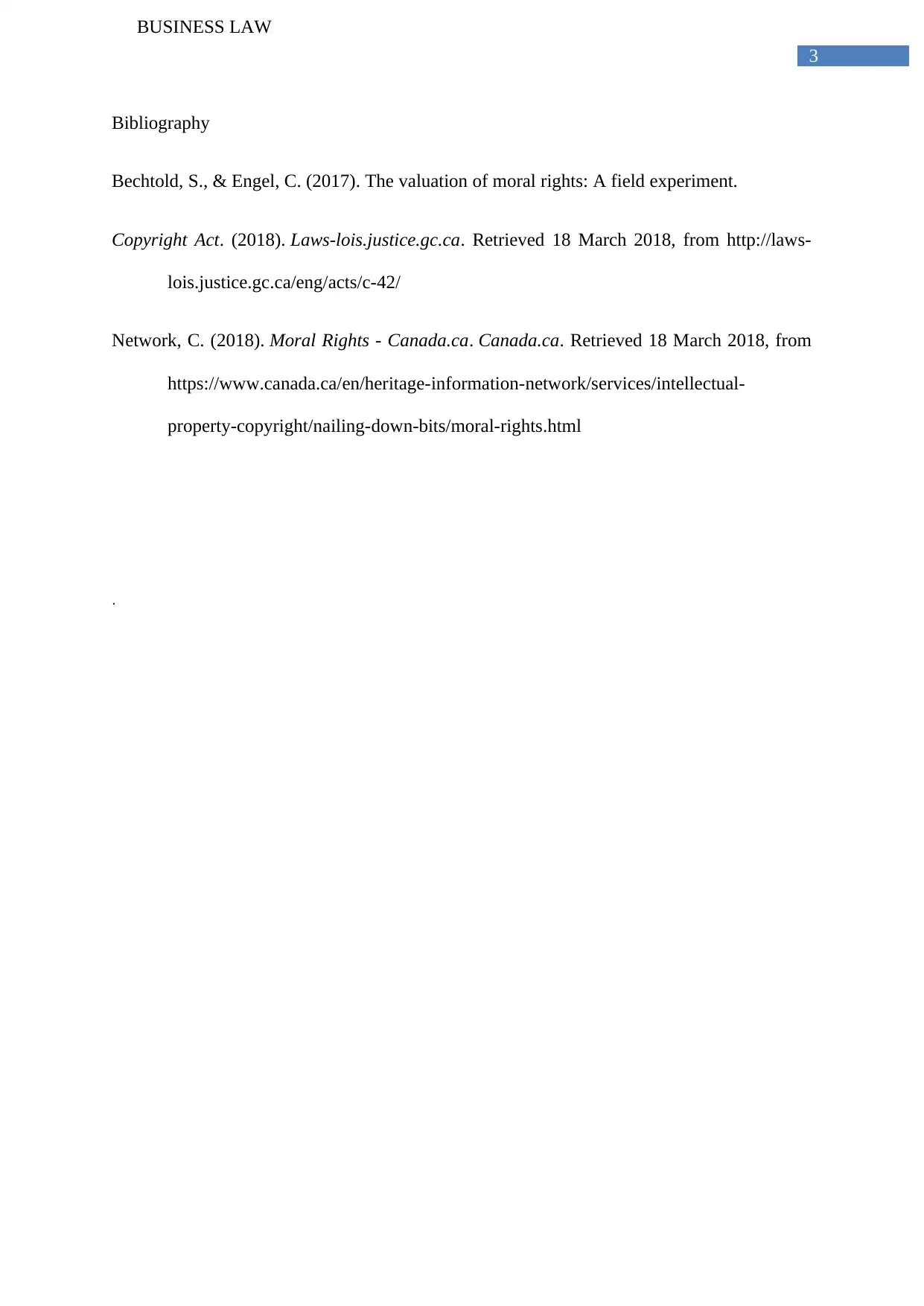Business Law Assignment: Moral Rights, Copyright, Remedies Analysis
VerifiedAdded on 2021/04/24
|4
|669
|23
Homework Assignment
AI Summary
This assignment delves into the intricacies of moral rights within the framework of Canadian business law, specifically focusing on the Copyright Act. The student explores the definition and protection of moral rights, differentiating them from economic rights and emphasizing their connection to the author's personality. The assignment analyzes the author's rights to association, integrity, and attribution, even after transferring copyright ownership. It examines infringement of moral rights, including acts that prejudice the author's reputation or honor, and discusses remedies available for such infringements. Through case analysis, the student applies legal principles to determine the author's ability to pursue rights against infringement, including potential damages or injunctions. The assignment references specific sections of the Copyright Act and includes a bibliography of relevant sources, providing a solid understanding of the legal concepts and their practical application.
1 out of 4










![[object Object]](/_next/static/media/star-bottom.7253800d.svg)